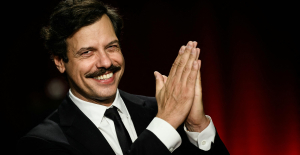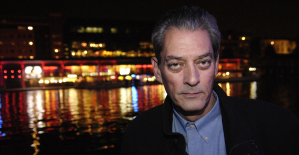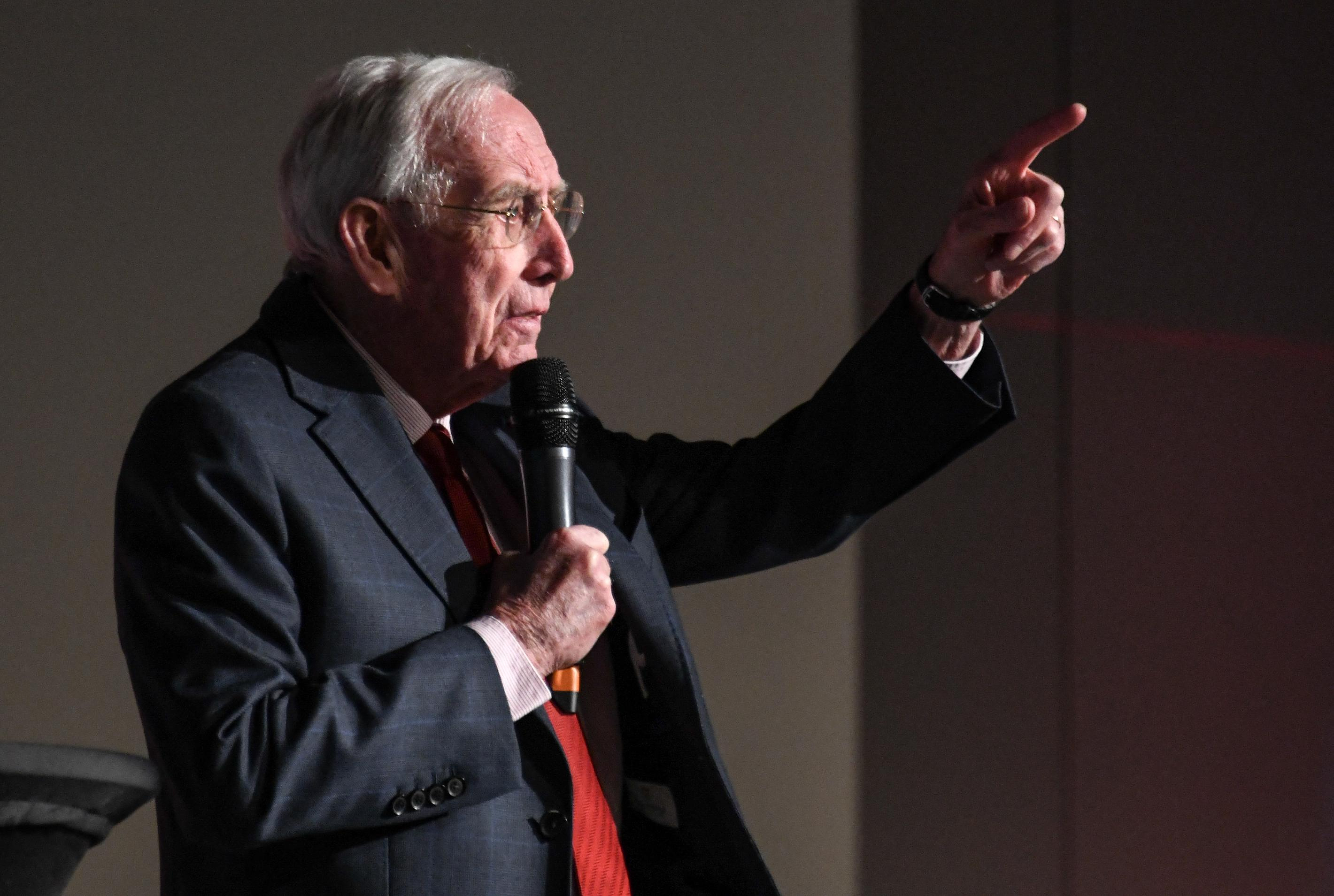Nothing stops Karin Viard. This month, the indefatigable actress with three Césars is showing three films: Magnificat, by Virginie Sauveur, Une nuit, by Alex Lutz, and Wahou! by Bruno Podalydes. Frank, rebellious and full of charm, the one who has nearly a hundred films to her credit answers questions tit for tat while sipping green tea.
LE FIGARO. - What seduced you in Virginie Sauveur's first film?
Karin VARD. - The fact that the film is above all a quest and an investigation carried out by a woman who seeks to know the truth on a social subject. From the outset, I liked the subject. I found that the film promised a strong reflection on faith and on the Church.
How would you define your character?
Charlotte is a single mother raising a fifteen-year-old son who is not comfortable with himself. At the same time, she is chancellor of the diocese of Paris. It is she who is in the front row when the drama begins. It is she who is called in the middle of the night to give her Father Pascal's death certificate. The film is quite disturbing, I find.
That's to say ?
The director reveals the rigid side of the Catholic institution. She puts her finger on a taboo of the Church. Why the hell can you ordain a male priest and not a female? Why should women not be allowed to celebrate Christ, too?
Weren't you afraid to make an iconoclastic film?
No. It is precisely a film which deeply respects faith, but which questions dogma. He is not afraid to be critical. I liked this mix between thriller and spiritual investigation. It's not a film that denounces anything about the Church. It does not address pedophilia or obscurantism.
What is his goal then?
With Magnificat, we are really making a film for today that raises a topical question. Why should women remain mere "maids" in the Church?
Isn't the idea of imposture central to the film?
Yes. And it's quite fascinating. How could this woman pass herself off as "Father Pascal" for so long? How could a woman priest spend a lifetime in the shoes of a man? She must have benefited from certain complicities in the church. If so why ? And why ? And what does that mean? This plot is both very strange and very plausible.
How was the filming?
It was exhausting, I won't hide it from you. Director Virginie Sauveur knew exactly what she wanted. She didn't give me a present. But, in the end, his attitude served his film, which frankly I find not bad at all.

 Poland, big winner of European enlargement
Poland, big winner of European enlargement In Israel, step-by-step negotiations for a ceasefire in the Gaza Strip
In Israel, step-by-step negotiations for a ceasefire in the Gaza Strip BBVA ADRs fall almost 2% on Wall Street
BBVA ADRs fall almost 2% on Wall Street Ukraine has lost 10 million inhabitants since 2001... and could lose as many by 2050
Ukraine has lost 10 million inhabitants since 2001... and could lose as many by 2050 Sánchez cancels his agenda and considers resigning: "I need to stop and reflect"
Sánchez cancels his agenda and considers resigning: "I need to stop and reflect" The Federal Committee of the PSOE interrupts the event to take to the streets with the militants
The Federal Committee of the PSOE interrupts the event to take to the streets with the militants Repsol: "We want to lead generative AI to guarantee its benefits and avoid risks"
Repsol: "We want to lead generative AI to guarantee its benefits and avoid risks" Osteoarthritis: an innovation to improve its management
Osteoarthritis: an innovation to improve its management Ukraine gets a spokesperson generated by artificial intelligence
Ukraine gets a spokesperson generated by artificial intelligence The French will take advantage of the May bridges to explore France
The French will take advantage of the May bridges to explore France Organic flour contaminated by a recalled toxic plant
Organic flour contaminated by a recalled toxic plant 2024 Olympics: Parisian garbage collectors have filed a strike notice
2024 Olympics: Parisian garbage collectors have filed a strike notice Actor Laurent Lafitte leaves the Comédie-Française
Actor Laurent Lafitte leaves the Comédie-Française Death of Paul Auster: Actes Sud says he is “lucky” to have been his publisher in France
Death of Paul Auster: Actes Sud says he is “lucky” to have been his publisher in France Lang Lang, the most French of Chinese pianists
Lang Lang, the most French of Chinese pianists Author of the “New York Trilogy”, American novelist Paul Auster has died at the age of 77
Author of the “New York Trilogy”, American novelist Paul Auster has died at the age of 77 Omoda 7, another Chinese car that could be manufactured in Spain
Omoda 7, another Chinese car that could be manufactured in Spain BYD chooses CA Auto Bank as financial partner in Spain
BYD chooses CA Auto Bank as financial partner in Spain Tesla and Baidu sign key agreement to boost development of autonomous driving
Tesla and Baidu sign key agreement to boost development of autonomous driving Skoda Kodiaq 2024: a 'beast' plug-in hybrid SUV
Skoda Kodiaq 2024: a 'beast' plug-in hybrid SUV The home mortgage firm rises 3.8% in February and the average interest moderates to 3.33%
The home mortgage firm rises 3.8% in February and the average interest moderates to 3.33% This is how housing prices have changed in Spain in the last decade
This is how housing prices have changed in Spain in the last decade The home mortgage firm drops 10% in January and interest soars to 3.46%
The home mortgage firm drops 10% in January and interest soars to 3.46% The jewel of the Rocío de Nagüeles urbanization: a dream villa in Marbella
The jewel of the Rocío de Nagüeles urbanization: a dream villa in Marbella Europeans: a senior official on the National Rally list
Europeans: a senior official on the National Rally list Blockade of Sciences Po: the right denounces a “drift”, the government charges the rebels
Blockade of Sciences Po: the right denounces a “drift”, the government charges the rebels Even on a mission for NATO, the Charles-de-Gaulle remains under French control, Lecornu responds to Mélenchon
Even on a mission for NATO, the Charles-de-Gaulle remains under French control, Lecornu responds to Mélenchon “Deadly Europe”, “economic decline”, immigration… What to remember from Emmanuel Macron’s speech at the Sorbonne
“Deadly Europe”, “economic decline”, immigration… What to remember from Emmanuel Macron’s speech at the Sorbonne These French cities that will boycott the World Cup in Qatar
These French cities that will boycott the World Cup in Qatar Football: a goal from Georges Mikautadze broadcast...in Times Square
Football: a goal from Georges Mikautadze broadcast...in Times Square Dortmund-PSG: in video, Borussia’s opening score
Dortmund-PSG: in video, Borussia’s opening score Tennis: Sabalenka stops Andreeva and enters the last four in Madrid
Tennis: Sabalenka stops Andreeva and enters the last four in Madrid “It doesn’t look very positive”, big concern around Lucas Hernandez injured in the knee
“It doesn’t look very positive”, big concern around Lucas Hernandez injured in the knee


















